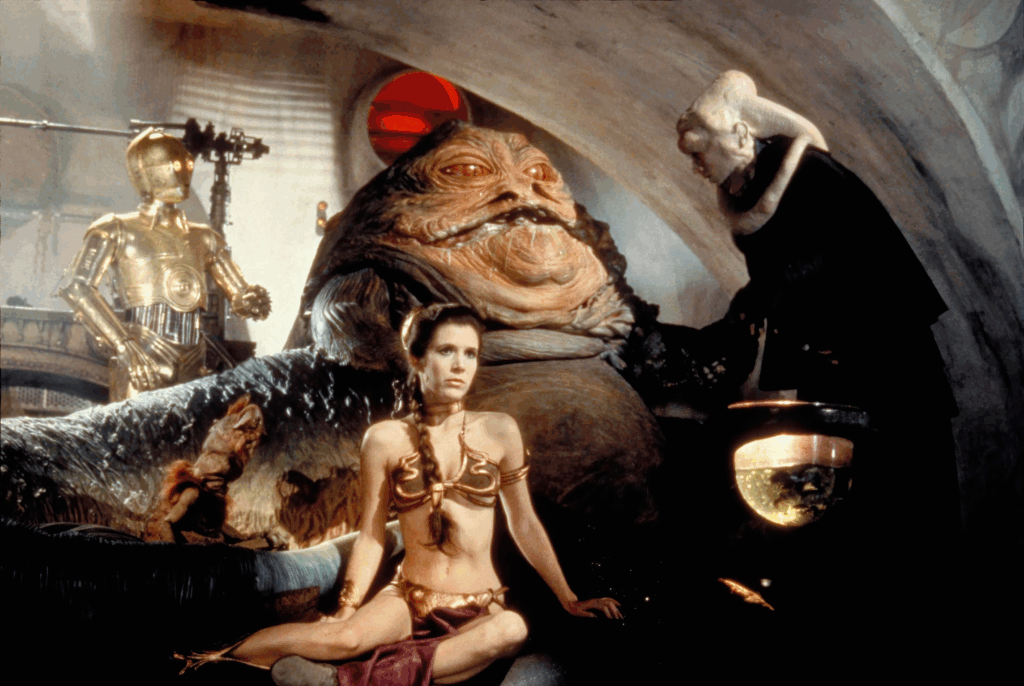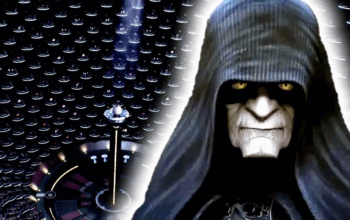Intro

In the months leading up to Andor Season 2, fans were cautiously optimistic. After all, Andor Season 1 had been universally praised by critics and audiences alike for its complex characters, mature storytelling, and unflinching exploration of morality. But there was also worry — after Disney’s mishandling of The Mandalorian Season 3, and the utter dud that was The Acolyte, some feared Andor could lose the edge that made it special.
Thankfully, those fears were unfounded. Season 2 has once again delivered with complex writing, worldbuilding, cinematography, and rich characters backed by fantastic performances. Like an HBO series that happens to be set in the Star Wars universe.
That said, it hasn’t escaped controversy. One of the biggest debates swirling around the show asks a familiar question: Is this even Star Wars? For some, Star Wars must mean lightsabers, the Force, space battles — not grounded political drama reflecting uncomfortable real-world issues.
But that kind of reaction says more about the critics’ naivety than about the show itself.
I’m of course referring to that scene — the disturbing moment in Episode 3, The Harvest, where an Imperial officer corners Bix in a thinly veiled attempt at sexual assault.
The Scene in Question

For context: in the year-long time jump since Season 1, after the riots on Farrix (which may have ended in a full-scale massacre), many survivors have fled and resettled on the farming planet Mina-Rau as refugees. But the Empire’s strict chain code system — which monitors the movement of every galactic citizen — makes it extremely difficult for anyone to escape unnoticed. The Empire actively hunts down those who illegally settle on other worlds, and survivors of Farrix would be high-priority targets for Imperial investigation.
Bix, still haunted by severe PTSD from her earlier imprisonment and torture, finds herself cornered once again, this time by an Imperial officer overseeing labor audits on Mina-Rau. Knowing she and her friends have settled illegally, the officer uses the threat of exposure as leverage, pressuring her for sex in exchange for looking the other way. Bix refuses.
The scene that follows doesn’t pull any punches. The violence is messy, visceral, and uncomfortably real. The show doesn’t cut away or rely on implication — it forces the audience to sit through every agonizing second. She fights her attacker, but not cleanly. This is someone being overpowered by a stronger guy, so she had to pick up a random wrench to kill him. The moment ends with Bix bluntly telling another officer, “He tried to rape me.” That is not a line I ever expected to hear in a Star Wars production.
What makes this even more remarkable is that Tony Gilroy, the showrunner, has publicly stated he faced no pushback from Lucasfilm or Disney on including the scene. In an era when Disney often plays its franchises too safe, the fact that there was no resistance — even under Lucasfilm President Kathleen Kennedy — speaks volumes about the creative trust placed in Gilroy’s vision for Andor.
This is territory Star Wars has never crossed before — at least, not this openly.
When tackling something as serious as sexual assault, it must be handled with extreme care. It cannot exist purely for shock value or exploitation. It needs to serve the story in a significant way and make a point. It also fit organically into the world being portrayed.
Which leads us to the central debate: Does this belong in Star Wars?
Have You Been Living Under a Rock?

It’s important to understand that sexual exploitation isn’t entirely new to Star Wars. We all remember what Jabba the Hutt forced Leia to wear — a skimpy outfit meant to publicly humiliate and sexualize her. There were very disturbing implications about what Jabba and his gang may have been doing with these women. It’s clear that exploitation has been hinted at before, but it’s never been brought to the forefront to this extent.
In some of the old Expanded Universe (Legends) material dealt with these themes more directly, including one storyline where Boba Fett had a wife who became a victim of such circumstances. While these stories were never part of the mainstream Star Wars films, the franchise has dabbled with these darker topics before, albeit often in the margins.

The question of whether it belongs in this show depends entirely on tone, and Andor established its tone from the very first minutes of Season 1. The series opened with Cassian Andor visiting a brothel and killing two security guards in cold blood. From the outset, Andor made it clear this wasn’t the sanitized, swashbuckling adventure version of Star Wars.
That’s precisely why this scene works here and why it wouldn’t have worked in any other Star Wars show. You could never imagine something like this fitting into The Mandalorian, Obi-Wan Kenobi, or Ahsoka. The tone, maturity, and narrative style of Andor uniquely allow it to tackle these kinds of real-world abuses without feeling out of place.
Andor isn’t clean or safe — and that’s exactly the point.
Bix’s assault scene sheds light on one of the most disturbing realities of authoritarian regimes: how systems of unchecked power breed toxic environments where abuse becomes normalized. History is filled with examples of occupying soldiers, corrupt officials, and officers who abuse their authority to exploit vulnerable populations. The Empire, as a fascist colonial power, would be no exception.
It cannot be denied that there is something uniquely heinous about sexual violence that many simply wouldn’t discuss compared to murder or genocide. Star Wars has shown genocide (Alderaan, Jedi purge), slavery (Wookiees, Twi’leks), and people being cut in half by lightsabers. Yet when Andor dares to depict sexual violence, some recoil as though this subject somehow crosses a line too far. But real fascist regimes aren’t just about mass killings; they’re about the slow, grinding dehumanization of individuals.
Disturbing as this scene was, as someone who has watched difficult, harrowing depictions of sexual violence in films like The Girl with the Dragon Tattoo, or The Nightingale, this was still very tame by comparison. They were still able to keep this at a TV-14 level, confronting a heavy subject without ever veering into gratuitous or exploitative territory.
And crucially, the scene serves a clear purpose for Bix’s character arc. Throughout Season 1, Bix has been repeatedly stripped of her agency. Witnessing her boyfriend’s death, enduring brutal torture, and being psychologically shattered. Here, for the first time, she fights back against her attacker. It’s a painful but important moment for a character as she finally has agency.
This is exactly why Andor is so effective. It’s willing to confront mature, uncomfortable subjects with the nuance they deserve. Simply put, Andor operates in a narrative space that no other Star Wars project has dared to enter. It wouldn’t work anywhere else.
Unfortunately, that’s not why I chose to write this article. I chose to write it because of the utterly ridiculous discourse being pushed by a vocal minority of influential fans.
Why Some of the Backlash Is Disturbingly Immature
What ultimately drove me to write this article isn’t the scene itself — it’s the reception. For the most part, both fans and critics have praised Andor for having the courage to address an all-too-relevant topic, especially in today’s political climate.
That said, I completely understand that this scene isn’t easy for everyone. Honestly, I would have supported including a trigger warning beforehand so audiences aren’t completely taken aback. There are even reasonable arguments that it may have been unnecessary, since the assault is never referenced again. Even in Bix’s later trauma-induced nightmare sequences, that officer doesn’t appear, which feels like a missed opportunity.

I fully acknowledge that Andor isn’t for everyone. Some viewers may simply be uncomfortable with Star Wars confronting subject matter this dark. Historically, the franchise has maintained a sort of unspoken barrier, dealing with genocide, slavery, and authoritarianism, while avoiding certain uglier, more intimate forms of violence to maintain accessibility for younger audiences.
But then some criticisms cross the line, which are just fundamentally wrong and deeply immature, and demand a response.
One of the most widely-circulated examples came from popular YouTube creator Star Wars Theory, who tweeted the following to his 3 million followers:
“SA in SW feels unnecessary. You can portray power dynamics and make the audience hate the Empire in other ways without taking it to such a disgusting place. Vader wouldn’t tolerate that shit, nor does the Empire condone it. It has no place in Star Wars. Period. Unnecessary.”
If he had simply said, “This was unnecessary,” that would at least he’d be arguing in good faith that’s still open for debate. But instead, he turns this into a cheap mic-drop argument that completely misrepresents both the scene and the show itself.
First of all, this scene has absolutely nothing to do with Darth Vader. Vader doesn’t make an appearance; he isn’t even mentioned. The events on Mina-Rau involve low-level Imperial bureaucracy — labor audits, minor regional enforcement activities are far beneath Vader’s attention. The suggestion that Vader’s code of conduct somehow applies here is irrelevant.
And while I actually agree that Vader himself isn’t this type of abuser — he’s not a sadist or sexual predator; he’s a cold, brutal enforcer who carries out his job — that distinction is completely irrelevant to what Andor is depicting. This is about systemic corruption at the lower levels of the Empire, not Vader himself.
Second, asserting that the Empire wouldn’t condone it — as if they’re somehow immune to this kind of abuse — is pure arrogance. It reflects a deeply naive, almost childish misunderstanding of how authoritarian regimes function. Corruption, abuse of power, exploitation — these thrive in authoritarian systems precisely because they normalize abuse at every level, whether officially sanctioned or not. That’s the entire point Andor is making: the Empire creates an environment where people like this officer feel emboldened to exploit vulnerable refugees, because they know there’s little accountability. It’s not about policy — it’s about the culture that fascism breeds.
That’s a reality Star Wars Theory clearly doesn’t understand.
Speaks to a Greater Divide
What this reaction really exposes is the deeper divide among Star Wars fans, especially online, about what the franchise is even supposed to be. For many, Star Wars is meant to be pure escapism: spaceships, lightsabers, simple morality tales, and clear-cut heroes and villains, free of anything resembling “contemporary politics.”
I understand where some of that comes from. The cultural fallout of the MeToo movement, the 2016 and 2024 U.S. elections, and years of hyper-polarized online discourse have created hostile ideological camps where even basic story elements get weaponized into political footballs. Unfortunately, these culture war arguments often hijack legitimate discussions and turn them into bad-faith nonsense.
Worse, many fans, including Star Wars Theory, have spent far too much time fraternizing with “anti-woke” grifters: people who reflexively rage against any story that centers women, people of color, or mature themes they don’t want to confront. At a certain point, we’re no longer talking about honest criticism, we’re simply talking about people being assholes. And frankly, I was glad to see many of Star Wars Theory’s own fans call him out for how absurd his argument was.
What these people fail to grasp is that the entire point of this scene is to expose how fascist systems create toxic power dynamics that go far beyond just battlefield violence. Andor was never designed to be a light escapist fantasy. It was created to shine a light on the grim, often unspoken realities of authoritarian rule — the rot beneath the polished surface. The fact that voices with massive platforms choose to double down on willful ignorance is genuinely alarming.
For the record, Star Wars Theory eventually gave in to pressure, reviewed the rest of the season, and offered a (reluctantly positive) review while trying to save face. I’m glad he’s finally admited he’s mistakes and acknowledged the show’s quality, but these were mistakes that frankly should never have been made in the first place.
What’s even more frustrating is that creators like him — who have been begging for years to see Star Wars return to serious, high-quality storytelling — finally got exactly that with Andor. And yet, fans like Theory shrug it off because no jedi and there’s “bricks and screws,” (im not kidding).
Conclusion: The Difference Between Art and Comfort
When it’s done right, art should provoke conversation. It challenges us to see reality that makes us uncomfortable at times. It should make us confront things we’d often rather ignore. Yes — plenty of creators have handled difficult subjects poorly. I’ve written quite a lot about that on this site how amateur filmmakers resort to cheap shock value or controversy-baiting without any real respect for the audience or the topic (cough 13 reasons why).
But Andor isn’t one of those. It respects its audience enough to assume we’re capable of engaging with uncomfortable material when it serves the story and shines a light on the realities of authoritarian power. That’s the difference between art that makes you think and content that keeps you in your bubble.
The people lashing out at Andor aren’t just uncomfortable with one scene — they’re uncomfortable with what the show represents. It exposes the Ideal world they think they live in is nothing but a hollow projection of their own insecurities.
What Andor does best, more than any other recent science fiction project, is the brutally honest exploration of how fascism operates on every level, from mass atrocities down to personal abuse. It forces us to see the full spectrum of cruelty that authoritarian regimes enable. Not just the genocides and war crimes, but the everyday dehumanization that thrives when power goes unchecked. If Star Wars has room for planets being obliterated, for slavery, for torture, for war crimes, and for entire populations being systematically erased, then it has room for Andor — a series that finally dares to treat autocrats with the seriousness they deserve.


